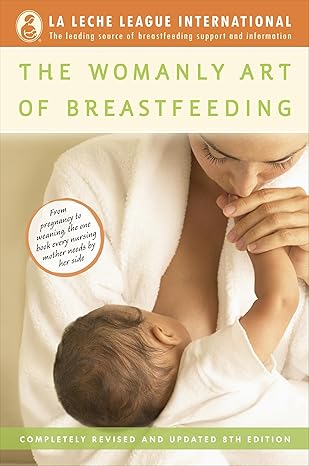Breastfeeding is much more than just a way to feed an infant. It’s a complex and profoundly beneficial biological process for both the baby and the mother. Recommended by the World Health Organization (WHO) as the exclusive mode of feeding for the first six months of life, and complementary until two years and beyond, breastfeeding offers a multitude of advantages on nutritional, immunological, emotional, and economic levels. Understanding its importance and knowing the keys to its success is essential for serenely supporting new parents in this unique experience.
The Invaluable Benefits of Breastfeeding for Baby
Breast milk is a living substance, constantly adapting to the specific needs of the child at each stage of their growth. Its unique and dynamic composition gives it exceptional properties:
- Optimal Nutrition: Breast milk contains a perfect balance of proteins, fats, carbohydrates, vitamins, and minerals, perfectly bioavailable and adapted to the infant’s immature digestive system. It notably provides the essential fatty acids for brain and visual development.
- Strengthened Immune Protection: Rich in antibodies, enzymes, and immune cells, breast milk acts as a true protective shield against bacterial, viral, and parasitic infections. It significantly reduces the risk of diarrhea, ear infections, respiratory infections, and allergies.
- Healthy Development: Breastfeeding promotes harmonious oral and maxillofacial development, reducing the risk of dental malocclusion. It also contributes to better cognitive development and a potentially higher intelligence quotient.
- Reduced Risk of Chronic Diseases: Studies have shown that breastfed babies have a lower long-term risk of developing diseases such as obesity, type 2 diabetes, asthma, and certain forms of cancer.
- Strengthened Emotional Bond: Skin-to-skin contact during breastfeeding promotes the release of oxytocin, the “love hormone” and bonding hormone, strengthening the emotional connection between mother and child and contributing to their psychological well-being.
The Significant Advantages of Breastfeeding for the Mother
The benefits of breastfeeding are not limited to the baby. The mother also derives numerous advantages:
- Accelerated Postpartum Recovery: Breastfeeding stimulates uterine contractions, helping to reduce postpartum bleeding and return to its initial size more quickly.
- Reduced Risk of Diseases: Research has shown that breastfeeding can decrease the risk of developing certain types of cancer (breast, ovarian), type 2 diabetes, and cardiovascular diseases in the long term.
- Aids in Weight Loss: Breast milk production consumes calories, which can facilitate the return to pre-pregnancy weight.
- Practical and Economical Aspect: Breast milk is always available, at the right temperature, and costs nothing. It eliminates the need to prepare and sterilize bottles.
- Emotional Well-being: The release of oxytocin during breastfeeding promotes a feeling of calm and well-being, helping to prevent postpartum depression.

Essential Tips for Successful Breastfeeding
While breastfeeding is a natural process, it can sometimes require learning and adequate support. Here are some key tips to promote a successful breastfeeding experience:
Information and Preparation:
Learning about breastfeeding during pregnancy, participating in prenatal workshops, and exchanging with other breastfeeding mothers can help anticipate challenges and build confidence.Early Latch:
Ideally, the first feeding should take place within the first hour after birth. The baby’s sucking reflex is then at its maximum.Positioning and Effective Latch:
Proper positioning of the baby at the breast is crucial to avoid pain and ensure optimal milk transfer. The baby should be well-supported, facing the breast, with their nose at the nipple level and their mouth wide open to latch onto a large part of the areola.Respond to Baby’s Hunger Cues:
Breastfeed on demand, following the baby’s hunger cues (mouth movements, sucking on hands, restlessness), rather than on a fixed schedule, to meet their needs and stimulate milk production.Patience and Perseverance:
The first few days can be challenging. Sore nipples, difficulties with latching, or concerns about milk supply are common. It’s important to persevere and not hesitate to seek help.Support and Guidance:
The support of the surrounding environment (partner, family, friends) plays an essential role in the emotional and practical support of the breastfeeding mother. Healthcare professionals (midwife, lactation consultant, pediatrician) can also provide advice and solutions in case of difficulties.Self-Care:
A balanced diet, sufficient hydration, and adequate rest are important for maintaining good milk production and the mother’s well-being.Managing Engorgement and Mastitis:
Knowing the signs and actions to take in case of breast engorgement or mastitis (breast inflammation) is important to avoid complications.Avoid Comparison:
Each breastfeeding experience is unique. It’s important not to compare yourself to others and to trust your body and your baby.Knowing When and How to Wean:
Weaning is a natural step that should be done gently, respecting the rhythm of both the mother and the child.
Conclusion
Breastfeeding is a precious investment in the long-term health and well-being of both the child and the mother. By understanding its importance and relying on adequate advice and support, new parents can experience this in an enriching and fulfilling way. Don’t hesitate to seek help from healthcare professionals to overcome any difficulties and fully enjoy this unique and nourishing bond.












No Comment! Be the first one.